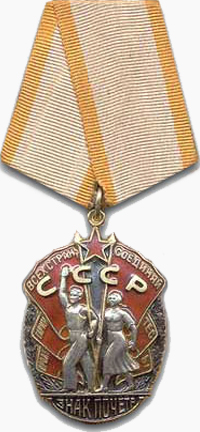You can help expand this article with text translated from the corresponding article in Russian. (June 2013)Click [show] for important translation instructions.
|
Государственный ордена «Знак почета» Русский драматический театр | |
 Cheboksary Russian Drama Theatre in 1980s | |
| Address | Ulitsa Gagarina Cheboksary Chuvashia, Russia |
|---|---|
| Coordinates | 56°07′35″N47°15′52″E / 56.126356°N 47.26435°E |
| Construction | |
| Opened | 14 December 1922 |
| Website | |
| link (in Russian) | |
Public Order (Badge of Honor) Russian Drama Theater is a theatre located in Cheboksary, Chuvashia, Russia. It was founded on 14 December 1922.


